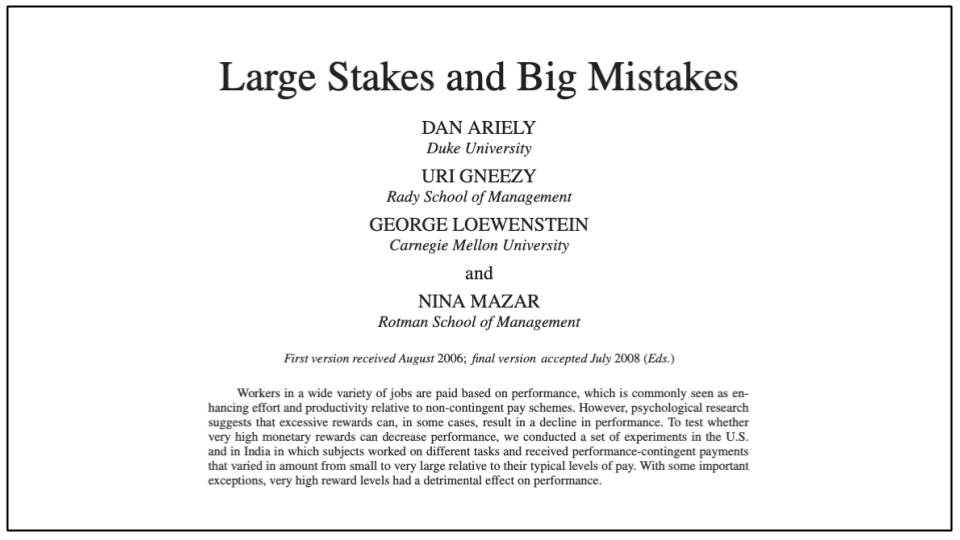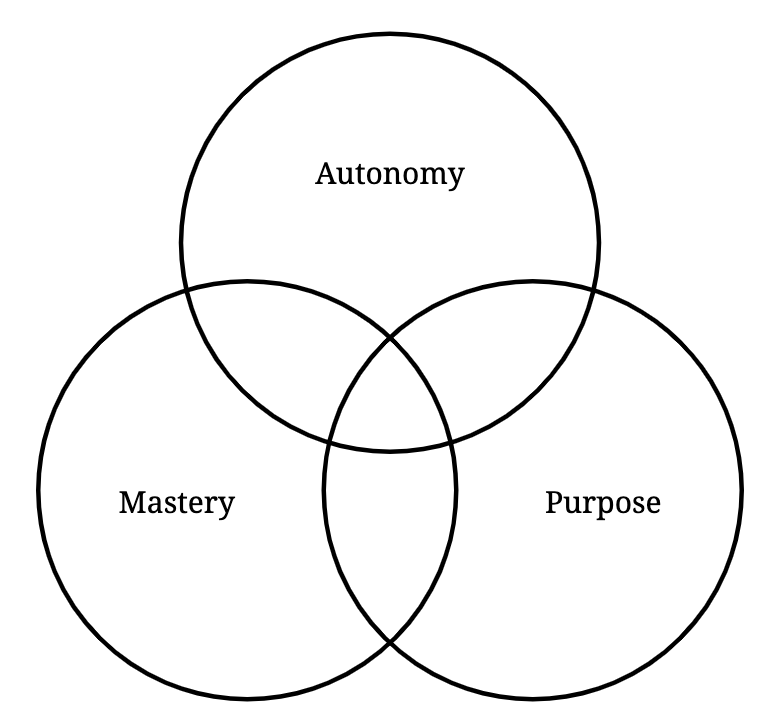Why do you get up in the morning? What drives you to work, create, and connect with people? Many traditional models of motivation argue human beings are mostly driven by rewards—whether financial, material, or social—or by fear of punishment. At work, money is often used as a productivity driver. But author Daniel Pink suggests a new model of motivation beyond money in his classic book Drive: The Surprising Truth About What Motivates Us.
While tying monetary payment to performance and productivity is common in the workplace, research shows that higher pay and bonuses result in better performance only for basic tasks with a defined set of steps and a single outcome. When the task involves higher-order thinking, such as creativity, cognitive skills, or decision making, linking pay to performance actually results in lower performance. So how do you motivate knowledge workers, and how do you motivate yourself if your work involves higher-order thinking?

Money alone can’t buy us motivation
“The best use of money as a motivator is to pay people enough to take the issue of money off the table: Pay people enough so that they’re not thinking about money and they’re thinking about the work. Once you do that, it turns out there are three factors that the science shows lead to better performance, not to mention personal satisfaction: autonomy, mastery, and purpose,” explains Daniel Pink.

Let’s unpack these three factors.
- Autonomy. The desire for self-direction.
- Mastery. The drive to improve our skills.
- Purpose. The desire to work on something meaningful and important.
Having high autonomy in your work will increase your engagement. Instead of blindly executing on top-down plan, you will be more likely to ask questions and actively shape the right strategy. A drive for mastery will turn you into an enthusiastic self-learner with the growth mindset to tackle challenges as you go. Finally, a sense of purpose will give value and significance to your work, so you better manage to project yourself towards long-term goals, however ambitious.
Interestingly, Daniel Pink suggests that businesses which only focus on profits without valuing purpose may end up with unhappy employees and poor customer service.
The bottom line? Pay your employees fairly. Make sure you are paid fairly. And if you’re an entrepreneur, make sure money is not your only source of motivation. Ask yourself whether your work brings you autonomy, a drive for mastery, and a sense of purpose.
